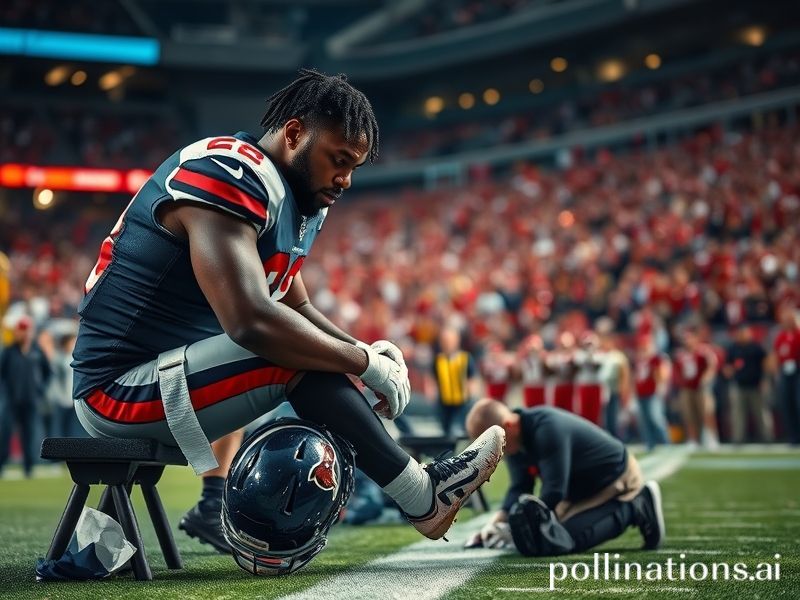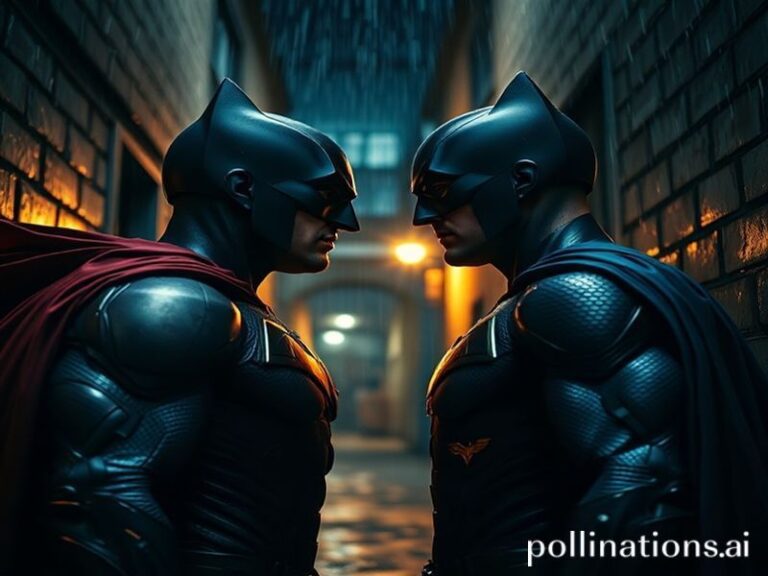Global Shockwaves: How Derrick Henry’s Foot Fracture Just Rebalanced the World Order (and Your Fantasy Team)
Derrick Henry’s Foot Fracture: How a 247-Pound Alabaman With a Ponytail Just Shifted the Geopolitical Tilt of a Hemispheric Pastime
Byline: Our Man in the Cheap Seats, Somewhere between Nashville and Narnia
If you happened to be sipping yerba mate in Montevideo or dodging scooters in Saigon last night, you may have missed the seismic tremor that rattled the American South: Titans running back Derrick Henry, human forklift and living testament to creatine, reportedly fractured a bone in his foot, instantly vaporizing millions of fantasy-football dreams and—if you believe the breathless U.S. sports networks—threatening the very fabric of Western civilization. The rest of the planet, meanwhile, offered a collective shrug so profound it registered on seismographs in Reykjavik.
Still, let’s not underestimate the butterfly effect of one man’s fifth metatarsal. The NFL’s global revenue pipeline—now sucking cash from London, Munich, Mexico City, and soon São Paulo—rests on the premise that colossal humans will stay colossal and healthy long enough to sell jerseys. Henry’s injury slices a neat 1.4 percent off that revenue projection for Q4, according to a London-based analytics firm whose interns probably still think “football” involves actual feet. Across European sportsbooks, the Titans’ Super-Bowl odds ballooned overnight from 9-1 to 18-1, prompting a run on futures so frantic that one Maltese crypto-only site briefly mistook the surge for a distributed-denial-of-service attack launched by disgruntled Tennesseans on dial-up.
In Asia, where American football ranks somewhere between competitive hot-pot and professional napping, the injury still managed to ripple through the supply chain. Those limited-edition Henry action figures—manufactured in Shenzhen, painted by hand in a factory that moonlights as an unofficial Apple leak mill—are now being re-boxed with a tasteful “Collectors’ Injury Variant” sticker. Retailers in Tokyo’s Akihabara district anticipate a 30 percent markup from irony-hungry otaku who relish the existential poetry of a broken hero in molded plastic.
Meanwhile, in the Middle East, the Saudi sovereign-wealth fund quietly recalculated its rumored $3 billion bid for the NFL’s international streaming rights. The fund’s governor—reportedly a Ravens fan who discovered American football via a pirated episode of *Hard Knocks*—took the Henry news as divine confirmation that even 6-foot-3, 247-pound demigods are as mortal as the rest of us, just more expensive to insure. Analysts in Dubai predict the injury will shave a symbolic $17 million off the final offer, roughly the cost of a modest super-yacht or one poorly timed drone strike.
Back in the United States, the reaction has been predictably operatic. Nashville bars held candlelight vigils—battery-operated, for liability reasons—while local radio hosts debated whether Henry’s foot should be placed on the NFL’s endangered-species list. One caller insisted the Titans trade for an offensive lineman from the Swedish National Arm-Wrestling Team, citing “Nordic bone density.” The host agreed, then cut to a commercial for payday loans.
The broader lesson, for those keeping score at home, is that modern sports have become the last universally translatable soap opera. A fractured foot in Tennessee triggers algorithmic sell-offs in Singapore, memes in Lagos, and existential dread in Green Bay. We have globalized fragility itself, monetized human ligaments in real time, and wrapped it all in a slick package of regional tribalism. Somewhere, a child in Nairobi who has never seen snow just learned to pronounce “metatarsal” with perfect American inflection.
So as Derrick Henry boards a private jet bound for the renowned foot whisperers of Los Angeles—where surgeons charge by the millimeter and recovery smoothies cost more than monthly rent in Lisbon—remember this: the world may not revolve around an Alabama running back, but it certainly wobbles when he limps. And if that doesn’t make you laugh darkly at the absurd majesty of 21st-century life, well, there’s always soccer. They break feet too, but with more diving and better accents.







